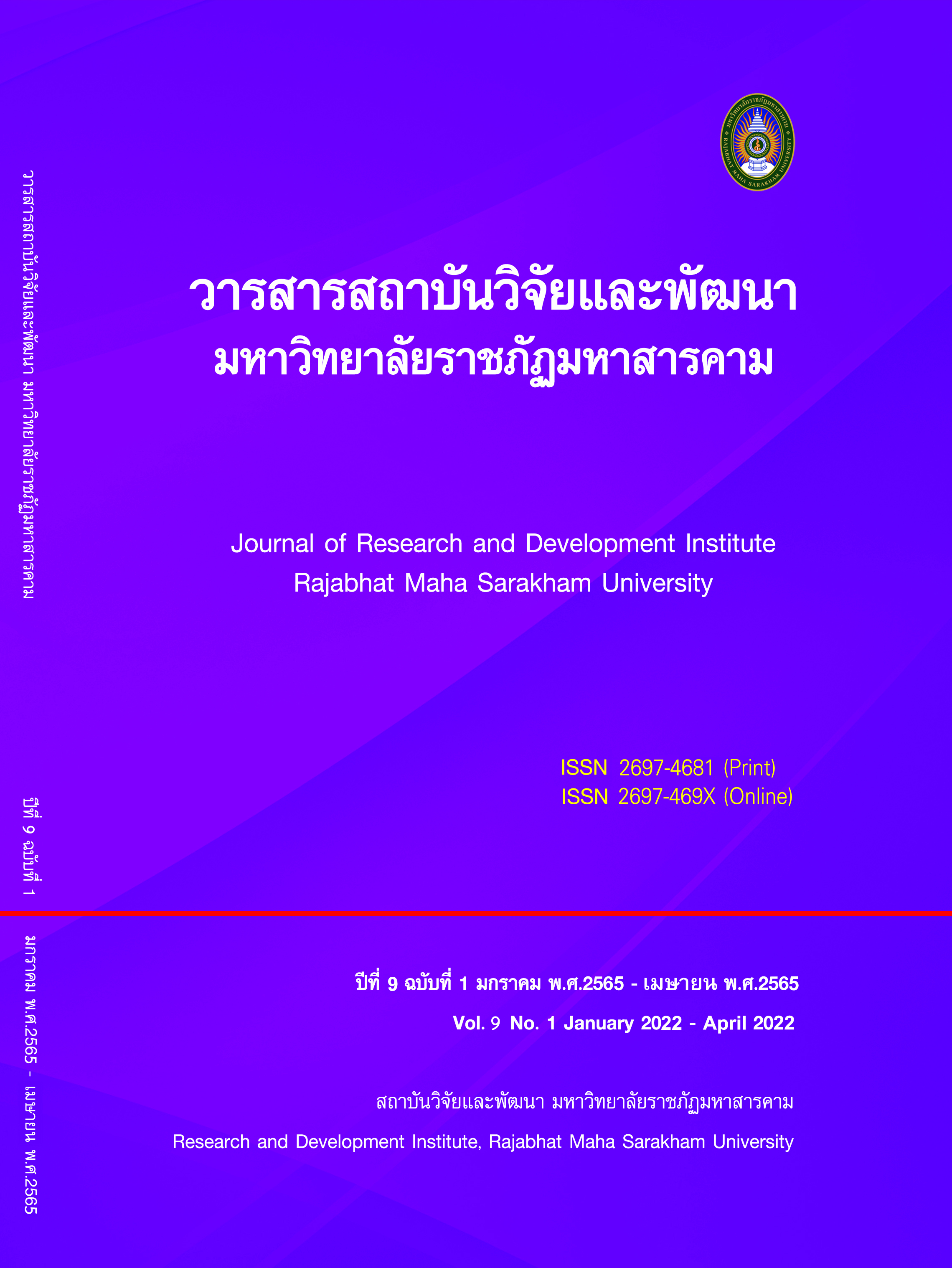The Potential Assesment of Communities for Eco – tourism and Cultural tourism Development, Case Study of Ban tha – Long Community , Ubon Ratchathani Province and Ban tha – Wat Community , Sakon Nakhon Province.
Keywords:
Ecotourism, Cultural tourism, Potential assessmentAbstract
The purposes of this study were : 1) to study potential of the communities for improving to Eco-tourism and Cultural-tourism. 2) to obtain data for processing and developing to Eco-tourism and Cultural-tourism. This research worked in 2 study areas ; 1) Ban Tha Long, Huay Phai Sub District, Khong Chiam District, Ubon Ratchathani Province. 2) Ban Tha Wat, Lao Po Dang Sub District, Muang District, Sakon Nakhon Province. Research method was worked by questionnaire survey from selected household and interviewed with community leaders, Government officer who involve in the study area, the local shop entrepreneurs, homestay services and local people.
The finding showed that both communities, Ban Tha Long and Ban Tha Wat, have an average ( ) at a high level in ecotourism and percentage tally (%) for cultural tourism is high level as well. The conclusion pointed out that both communities have the potential to be Eco-tourism and Cultural-tourism nevertheless there are the factors should be improved are encouraged the local people do more participate in tourism activities and suggested to the Government entire local and national level plan to develop the tourist attractions accordingly and explicitly. There are two development approaches: community level development should encourage people The private sector and community leaders are involved in decision making. Open a public forum for the community to determine the direction of the area's development There are government agencies to support in planning in terms of mapping, potential and linking with other tourist attractions and the proactive work of government and regional levels. Regional development there should be a study and promotion of tourism that is linked as a tourism route by using the connection point in the dimension of cultural tourism with a story or way of life along the Mekong in order to create a tourist destination in the region
References
Buabangploo, P. (2018). Sustainable Ecotourism Management Approach, Khao Khitchakut National Park, Chanthaburi Province. Rajabhat Rambhai Barni Research Journal, Vol.12(2), P.96-98.
Buaphet, G. (2006). Participation in Community Based Ecotourism Management : A Case Study of Khiriwong Community, Lan Saka District, Nakhon Si Thammarat Province Bangkok: Chulalongkorn University.
Bunyaprawit, T. (2015). Smart Growth Criteria Proposal and Thailand's Urban Planning Strategy. [Online]. http://www.oknation.net/blog/smartgrowththailand/2015/01/09/entry-2.
July 2020]
Chaipiboon, S. (2007). Participatory Cultural Tourism Management: A Case Study of Tourism Potential of Nakhon Chum Community, Mueang District, Kamphaeng Phet Province. Bangkok: Office of the National Research Council of Thailand.
Department of Public Works and Town & Country Planning. (2015). Land use schedule plan according to classification Type and display of transportation and transport projects annexed to the Ministerial Regulations to enforce the Bueng Kan Combined City Plan. Bueng Kan: Office of Public Works and Town & Country Planning.
Krachangcham, S., et al. (2018). Tourism Product Development Guidelines Project Set culturally to create added value. Case Study: Lanna Civilization Tourism Route, Sub-Project at 2Education to enhance cultural tourism routes for learning architectural values in the Lanna civilization path. Bangkok: Office of the National Research Council of Thailand.
Krejcie, R.V.,and Morgan D.W. (1970)." Determining Sample Size for Research Activities. " Psycholological measurement : 607-610.
Kuecharoen, S. (2006). Ecotourism. Bangkok: Apichart Printing.
Ministry of Tourism and Sports. (2008). Guidelines and strategies for developing ecotourism Ubon Ratchathani Province. Ubon Ratchathani: Ministry of Tourism and Sports.
Office of the Permanent Secretary. (2018). Thailand Tourism Statistics Report 2017. [Online]. :https://www.mots.go.th/old/ewt_dl_link.php?nid=11588. [15 February 2020]
Ongsakul, C. & Nuansanong, K. (2016). Cultural Tourism in Songkhla Lake Basin for Sustainable Development. Songkhla: Thaksin University.
Pianphon, P. (2016). Ecotourism management model with participation of the home community in the area of the Mon Ngoga Royal Project Development Center Chiang Mai. [Online]. http://mdc.library.mju.ac.th/thesis/2018/phornchai_phianphol/fulltext.pdf
June 2021]
Santasombat, Y. (1999). Ecotourism. [Online] http://www.bangkokbiznews.com.[29 July 2020].
Thong On, W. (2007). A set of teaching materials and human resources courses. Phrae University Bangkok: Kasetsart University.
Wichiannoi, N., et al. (2021). The Government’s Perspectives to the Tourism Development in Pathumthani Province: The Case Study Rangsit City Municipality, Thaklong Municipality, and Bueng Yitho Municipalit. Journal of Architectural/Planning Research and Studies, Vol. 8(12), P.1- 17.
Downloads
Published
How to Cite
Issue
Section
License
Copyright (c) 2022 Journal of Research and Development Institute Rajabhat Maha Sarakham University

This work is licensed under a Creative Commons Attribution-NonCommercial-NoDerivatives 4.0 International License.
Articles that are published are copyrighted by the authors of the articles







